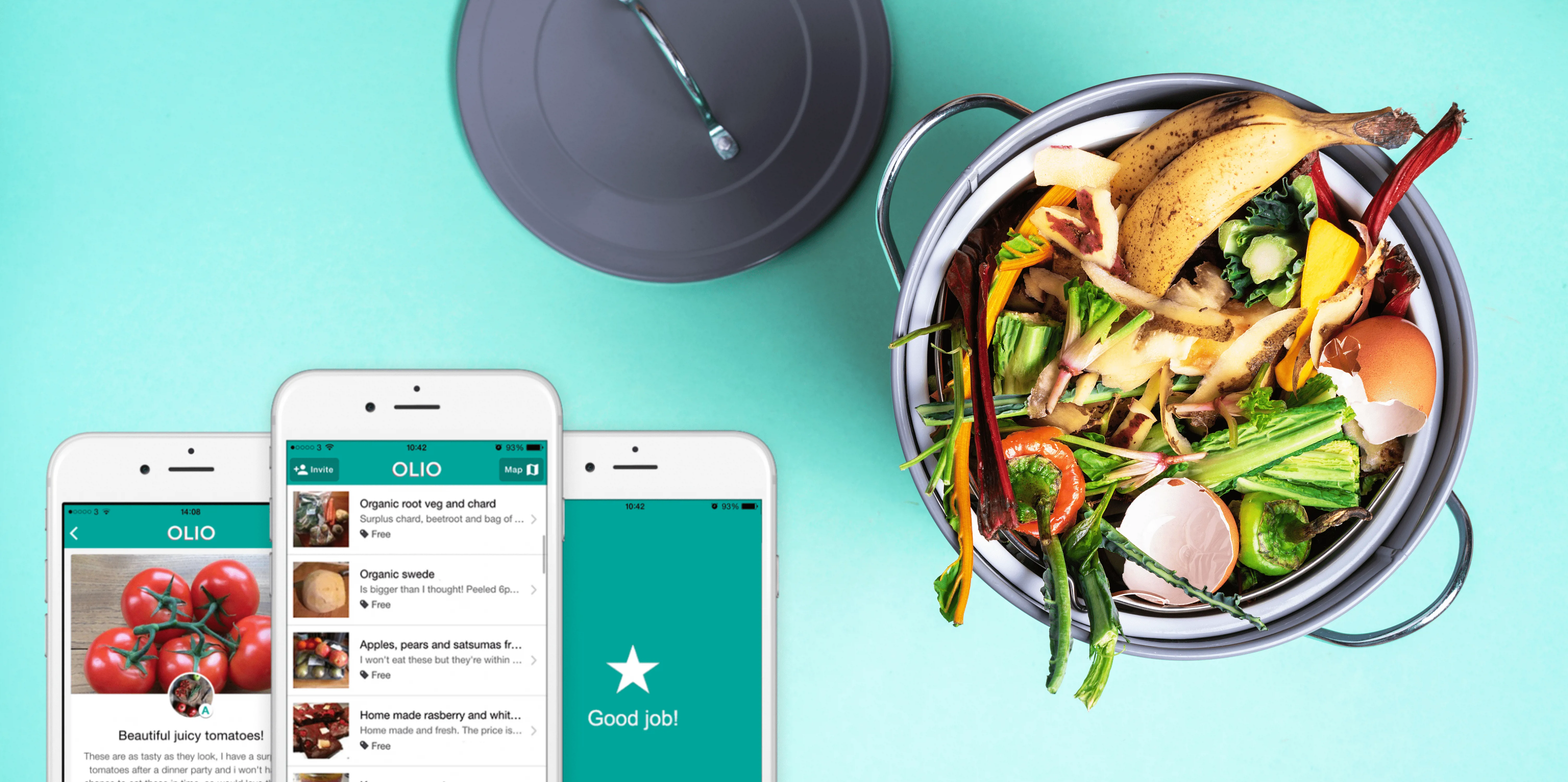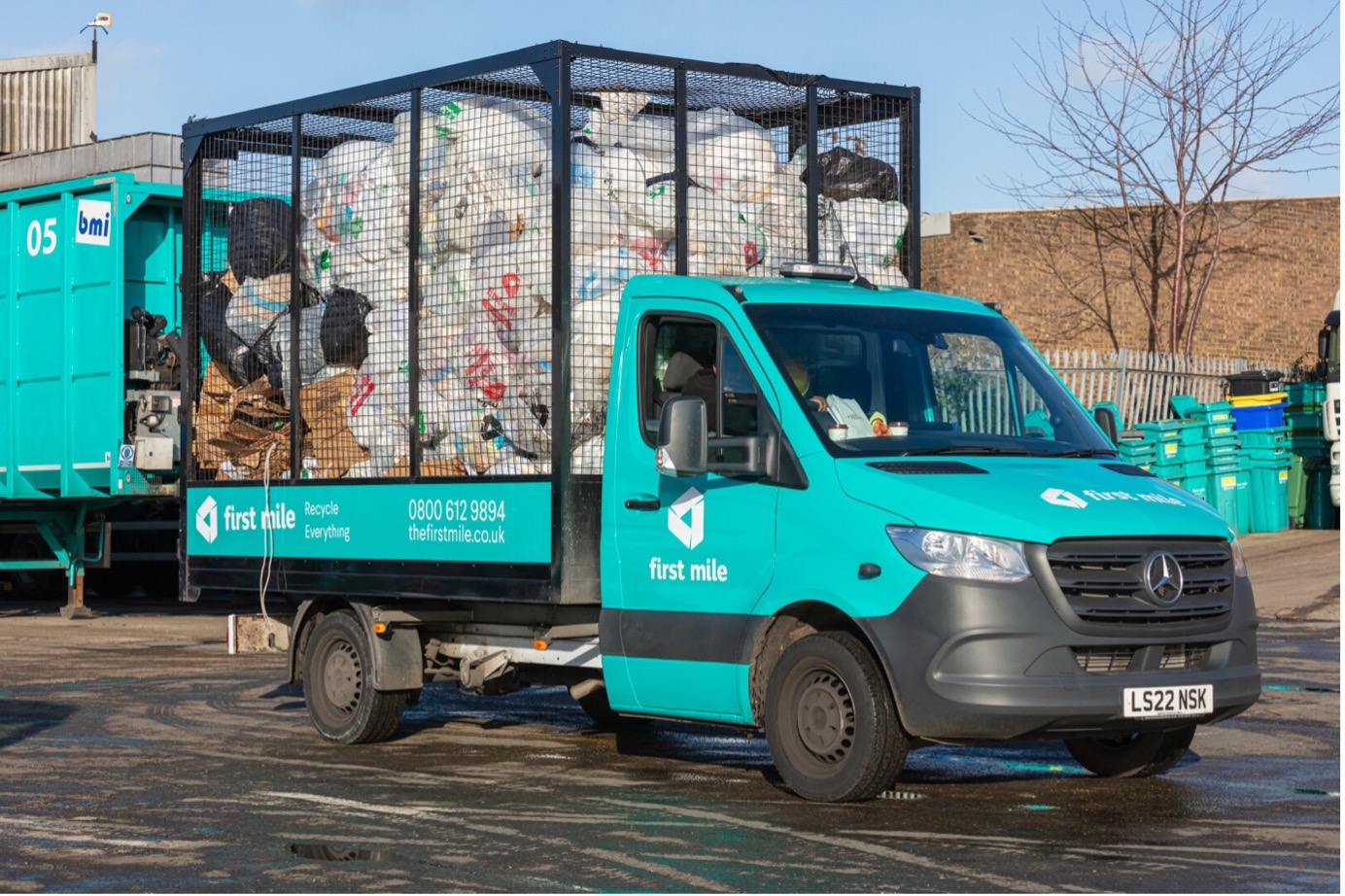We recently welcomed Tessa Clarke, co-founder of food-sharing app Olio to kick off season 5 of our podcast, Climate Heroes.
Since launching the app in 2015 with Sasha Celestial-One, Olio has grown to around 7 million members and 50,000 trained volunteers. Tessa has since hosted a hugely successful TED talk about reducing waste by sharing instead of throwing things away.
Food waste is a major problem in the UK, with an estimated 9.5 million tonnes of food wasted each year. This has a significant environmental and financial impact, and businesses have a responsibility to do their part to reduce food waste.
You can listen to the full episode of Climate Heroes with Olio’s Tessa Clarke here.
Why is food waste a problem?
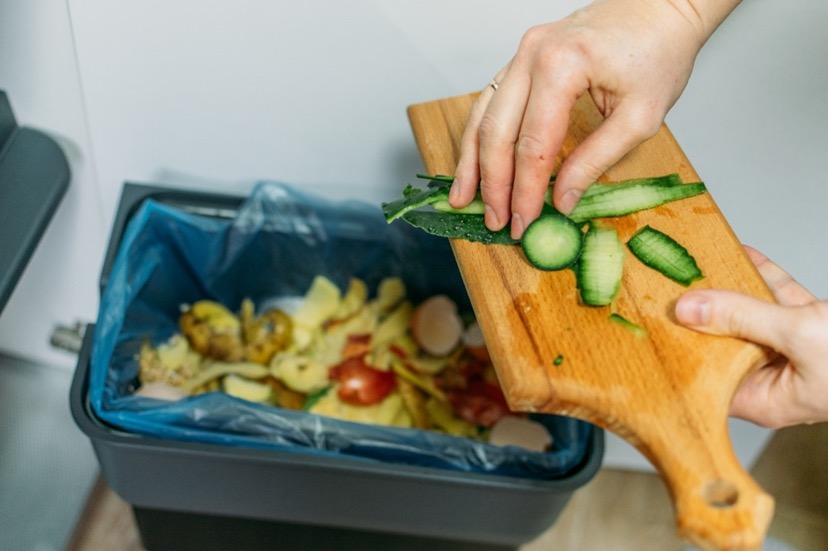
In the UK, it’s estimated that around 2 million meals worth of food is thrown away by businesses every year.
With the ongoing climate and cost-of-living crisis’, businesses are facing more pressure than ever from customers and staff to minimise food waste by creating solutions for surplus food. Unfortunately, the vast majority of this food is destined for landfill sites, where it breaks down and releases toxic methane gases.
It’s estimated that if global food waste emissions were a country, they would be third only behind the USA and China in terms of their total greenhouse emissions.
How can businesses reduce food waste?
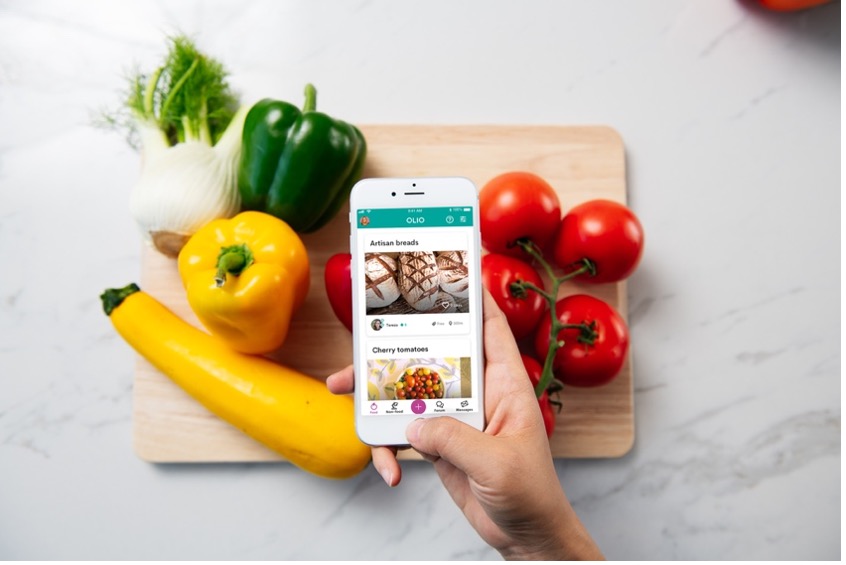
One way that businesses can reduce their food waste is to use Olio, a free app that connects people with food that would otherwise be wasted. Olio has partnered with over 50,000 businesses in the UK to help them redistribute their surplus food to people in need.
Here are some ways businesses can use Olio to reduce their food waste
- Identify surplus food. The first step is to identify which foods are most likely to go to waste in your business. This could be due to overproduction, spoilage, or customer returns. Once you have identified your surplus food, you can start to develop a plan to redistribute it.
- Sign up to Olio. Once you have signed up for Olio, you can create a business profile and start listing your surplus food. Be sure to include clear photos and descriptions of the food, as well as the collection time and location.
- Promote Olio to your customers. Let your customers know that you are using OLIO to redistribute surplus food. You can do this by posting signs in your store, adding a link to your website, or sending out an email newsletter.
- Work with an Olio Food Waste Hero. Olio Food Waste Heroes are volunteers who collect surplus food from businesses and deliver it to people in need. If you have a lot of surplus food, you may want to consider working with an Olio Food Waste Hero to help you redistribute it.
Which businesses are reducing their food waste?
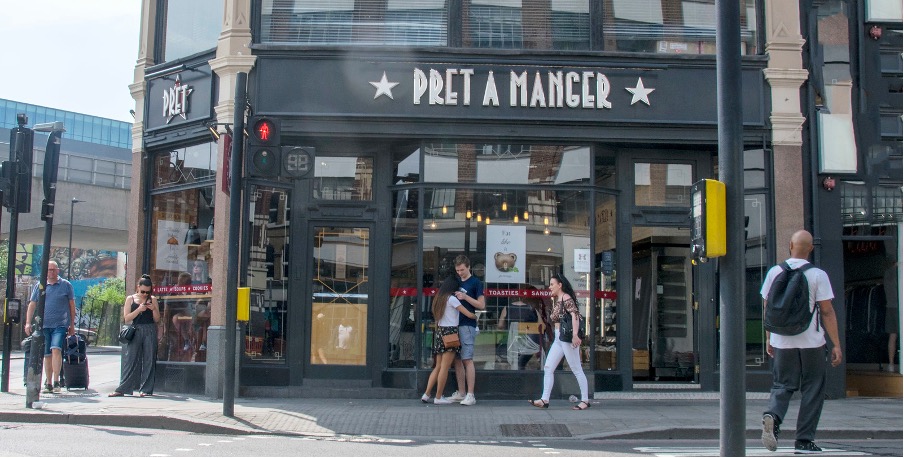
- Supermarkets. Supermarkets are a major source of food waste, but many are now using Olio to redistribute their surplus food. For example, Tesco has partnered with OLIO to redistribute surplus food from over 2,000 of its stores.
- Restaurants. Restaurants also produce a lot of food waste, but they can use Olio to redistribute their surplus food to customers and local people in need. For example, the restaurant chain Pret A Manger has partnered with OLIO to redistribute surplus food from all of its UK stores.
- Hotels. Hotels can also use Olio to redistribute their surplus food. For example, the hotel chain Hilton has partnered with Olio to redistribute surplus food from its hotels in the UK and Ireland.
Using Olio to reduce food waste is a win-win for businesses and the environment. Businesses can save money on food disposal costs and improve their sustainability credentials, while also helping to reduce food waste and feed people in need.
Benefits of using Olio for businesses
There are many benefits to using Olio for businesses, including:
- Reduce food waste and costs. Olio can help businesses to reduce their food waste and save money on food disposal costs.
- Improve sustainability credentials. Businesses that use Olio are demonstrating their commitment to sustainability and reducing their environmental impact.
- Strengthen community ties. Olio can help businesses to connect with their local communities and build stronger relationships with their customers.
- Enhance brand reputation. Businesses that use Olio are seen as being socially responsible and environmentally friendly, which can enhance their brand reputation.
How to get started with Olio
To get started with Olio, businesses can simply sign up for a free account and create a business profile. Once they have done this, they can start listing their surplus food on the app.
Businesses should be sure to include clear photos and descriptions of the food, as well as the collection time and location. They should also promote Olio to their customers and encourage them to use the app to collect surplus food.
If businesses have a lot of surplus food, they may want to consider working with an Olio Food Waste Hero. Olio Food Waste Heroes are volunteers who collect surplus food from businesses and deliver it to people in need.
Recycling your food waste with First Mile
Food can’t always be given away, especially if it’s past it’s sold by date or if it’s the leftovers of someone else’s food.
In this scenario, it’s important that food is recycled instead of being thrown away in a General Waste bin.
Why should your business recycle food waste?
Food waste that’s not recycled gets sent to landfills, where it rots and releases harmful chemicals such as methane – a harmful greenhouse gas 25 times more potent than carbon dioxide.
How is food waste recycled?
At First Mile, we recycle food waste using a process called anaerobic digestion. The process involves the use of microorganisms that break down food waste due to the absence of oxygen.
The process creates renewable energy, which is used to power the National Grid, as well as nutrient-rich fertiliser that’s sent to local farms. Just one banana peel generates enough power to charge your mobile phone twice.
Why recycle food waste with First Mile?
As well as our zero-to-landfill guarantee, setting up a dedicated Food Recycling Stream will lower your recycling costs and improve your business's recycling rate.
Get in touch today to set up your business's Food Waste Recycling and see how much you can save today.
